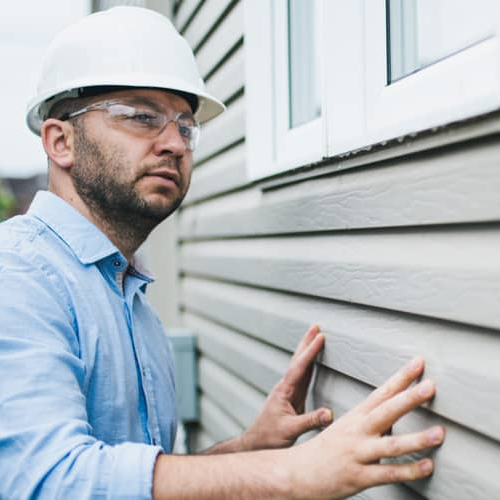Buying a house with unpermitted work: What you need to know
Contributed by Tom McLean
Sep 16, 2025
•7-minute read

Imagine finding a home you want to buy only to discover it has unpermitted work. What do you do? While unpermitted work can be unsafe and may derail the sale, it’s not necessarily a dealbreaker. With the right know-how and negotiation skills, you can still buy the home and come out on top financially.
What is unpermitted work?
Unpermitted work refers to any construction, renovations, remodels, or additions made without the required local building permits. Examples include unpermitted additions or DIY electrical and plumbing upgrades. Without proper approval, these changes can be unsafe, cause legal complications, and even reduce the property’s fair market value.
Risks of unpermitted work when buying a home
What happens if an inspector finds unpermitted work? If you buy one, you may need to get the necessary permits, pay fines, or even demolish unapproved work. Meanwhile, home insurers may refuse to cover the home, and lenders may refuse to finance it.
Let’s explore these risks in more detail so you can better understand what you’re up against:
DIY gone wrong
Unpermitted work is a red flag, if only because it signals amateur work. If a builder or contractor didn’t take the time to get permits, there’s a good chance they cut corners on materials or botched a remodel.
This is why it’s important to get a professional home inspection. Even if you’re okay taking on a fixer-upper, an inspection provides a full picture of a home’s condition and any needed repairs.
The homeowner is liable for penalties
When you buy a home, you assume its liabilities, including any outstanding fines from unpermitted work. You’re also responsible for bringing the property up to code, including hiring contractors. You’ll want to consider these expenses when making an offer on a home.
Homeowners insurance may not cover it
Before you finance a property, you must secure homeowners insurance. However, if the home has unpermitted work, the insurer may limit or deny coverage for any damage caused by or related to the unpermitted work.
Furthermore, if the unpermitted work wasn’t disclosed up front and discovered after the sale, your insurer may raise your premium, reduce coverage, or cancel your policy. To avoid this, secure coverage before you buy.
Mortgage lenders can demand repayment
Many lenders are hesitant to finance a home with unpermitted work since it can affect the property’s value. If you knowingly buy a home with unpermitted work and don’t disclose it, you may be violating the terms of your loan. In serious cases, this could lead the lender to call the loan due, leaving you in a challenging financial situation. So always disclose what you know.
Unpermitted work can stop the sale
If unpermitted work is discovered before closing, it may cause the appraisal to come in lower than expected, which could stop the sale in a few ways.
First, it could discourage you from following through with the purchase since the property is no longer what you thought it was. Second, even if you’re still interested, your lender might rescind or change its loan offer to reflect the actual value of the home.
How to identify unpermitted work
To identify unpermitted work, hire a professional home inspector. They’re trained to spot the signs of unpermitted work. Common signs of unpermitted work include uneven flooring, inconsistent walls, converted spaces, exposed utility lines, and unfinished work in general.
You also may want to visit your local building department to review the property’s permit history.
Options when negotiating to buy a house with unpermitted work
Before you write off a home with unpermitted work, you have some options. For example, you could ask the seller to get retroactive permits, make your offer contingent on an inspection, or renegotiate the sale price.
With a clear understanding of local code enforcement and an experienced real estate agent on your side, you could end up with an attractive deal.
Ask the seller to correct the problem
If you have more time to close on the house, you can ask the seller to correct the problem by:
- Getting retroactive permits
- Removing the renovation
- Correcting the renovation
Going this route protects you from liability, but you risk being turned down by the seller or extending the closing process.
Ask the seller to get retroactive permits
A retroactive permit is obtained after the construction or renovation work is complete. It’s like getting a fishing license after you’ve already caught a fish. It’s not ideal, but better late than never.
Retroactive permitting can legalize unpermitted work before closing, making it easier to qualify for financing and homeowners insurance. However, it also can cause delays or give the seller a reason to back out, especially if the retroactive permitting involves reconstruction.
If you choose this route, be prepared to negotiate with the seller. Ask them to apply for a retroactive permit, cover any related costs, and share the final permits with you once they’re issued. If the seller agrees, add these terms to your offer to protect your interests.
Renegotiate the price
To ensure a quick sale, consider negotiating with the seller to purchase the home as is at a reduced price. Tell the seller you’re willing to take on the added risk and costs of the unpermitted work if they accept a lower price.
Not sure how much of a discount to ask for? Consult a home inspector and get quotes from contractors to estimate how much it would cost to bring the home up to code. You also may want to consult your agent and lender to determine what seller concessions are realistic.
By pricing the unpermitted work into your offer, you may be able to close more quickly and with less hassle. However, you’re taking on more risk, including potential financing and insurance challenges.
Include an inspection or permit contingency
You can make your purchase offer contingent on whether a home inspection or permit review reveals unpermitted work. If it does, you can cancel or renegotiate your offer. Adding such contingencies to your purchase and sale agreement reduces your risk and protects you from unexpected problems with the home. However, it also can make your offer less competitive.
Before including a home inspection contingency in your offer, ensure it’s clearly written and reviewed by a lawyer.
Walk away from the deal
Sometimes the safest option is to back out of a sale, especially if the extent of the unpermitted work is significant or unknown, or the seller won’t cooperate.
For example, if proper permitting requires major structural work, the home may not be worth buying. Similarly, if the seller refuses to negotiate, you may be better off looking elsewhere. Think of it as a smart, protective choice rather than a failure. Also, don’t forget to request a refund of your earnest money if you walk away under contingency terms.
Steps to take if you decide to buy a house with unpermitted work
If you want to buy a house with unpermitted work, you can mitigate the risk and minimize future legal issues by following five key steps.
1. Hire a licensed contractor to evaluate the work
A licensed contractor can identify code violations, assess safety issues, and provide an estimated cost for corrections and upgrades. Their inspection report also can help with the retroactive permitting process and seller negotiations.
2. Contact your local building department
Ask your city or county permitting office what permits are missing and whether retroactive permits are allowed. Learn what plans, contractor statements, and inspections are needed to approve the necessary permits for the property.
3. Apply for retroactive permits, if needed and allowed
Some jurisdictions allow retroactive permitting, while others require demolition or updates to bring a property up to code. If retroactive permitting is allowed, apply with supporting documents, make any necessary updates, and schedule an inspection.
Retroactive permitting fees may be more expensive than pre-construction permits. You can ask the seller to pay or split these costs. Whatever you do, strive for total transparency and compliance at this stage.
4. Correct any code violations
In some cases, the permitting office may identify code violations after your permit is submitted and require corrections. These could include rewiring, reinforcing structures, replacing outdated plumbing, or other safety updates.
To comply, hire licensed professionals to do the work and keep all receipts and records of improvements. Then schedule another inspection with the permitting office for final approval.
5. Obtain final approval and documentation
Once all the work is complete and passes inspection, the building department will issue its final approval with a certificate of compliance.
Securely store the new permit with your other home documents. It will be important if you ever sell or apply for a mortgage refinance or change homeowners insurance companies. You may even want additional copies to share with your mortgage lender and insurance provider when the time comes.
The bottom line: Buying a house with unpermitted work requires careful planning
Buying a house with unpermitted work has real risks, but with careful planning and the right professionals in your corner, you can still make it work. Before moving forward, hire a licensed home inspector, verify local building codes, and consult real estate professionals. Whether you choose to negotiate repairs, request retroactive permits, or walk away entirely, making an informed buying decision should be your top priority.
If you’re ready to buy a home, start your mortgage application with Rocket Mortgage® today.

Christian Allred
Christian Allred is a freelance writer whose work focuses on homeownership and real estate investing. Besides Rocket Mortgage, he’s written for brands like PropStream, CRE Daily, Propmodo, PropertyOnion, AIM Group, Vista Point Advisors, and more.
Related resources

8-minute read
How much does it cost to renovate a house?
The amount it costs to remodel a house can vary depending on the scale of the project. Learn the average costs associated with various kinds of remodels.
Read more

10-minute read
Buying auction properties: What to know before you bid
Are you thinking about buying a house that’s up for auction? Learn how the process works and get some tips for making a successful bid on an auction prope...
Read more

5-minute read
Distressed property: Everything you need to know
A distressed property is a house that’s on the verge of foreclosure or has been reclaimed by a lender. Learn more about investing in distressed homes h...
Read more